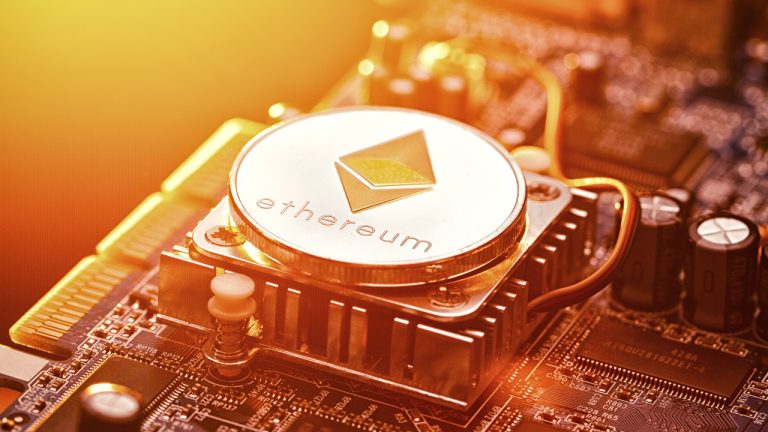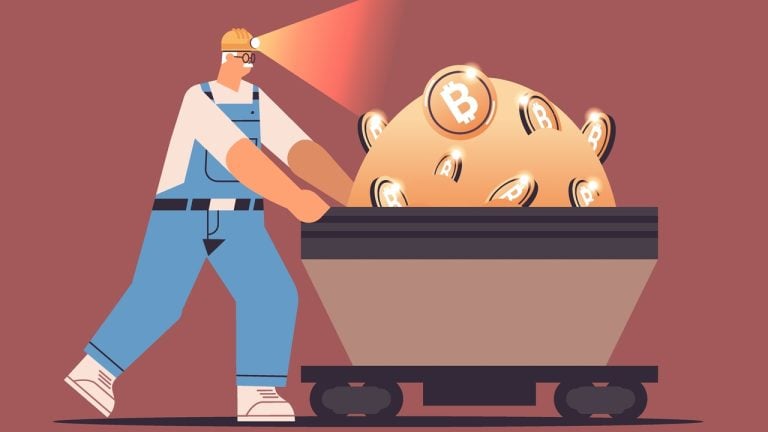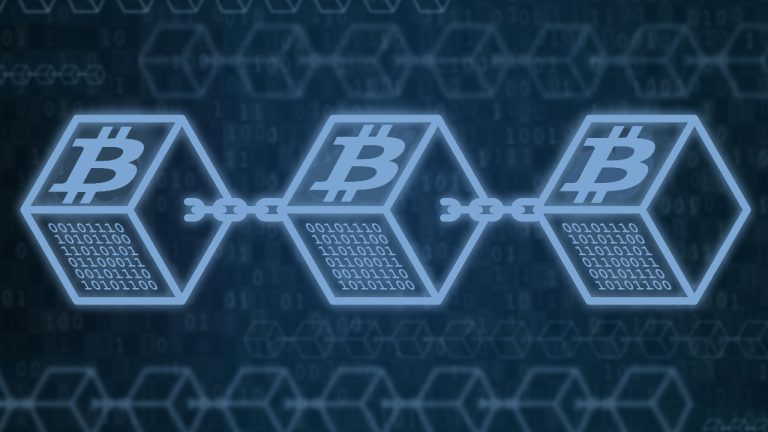 During the Execution Layer Meeting streamed on March 16, 2023, Ethereum developers announced that the blockchain is scheduled to upgrade on April 12, in 27 days. The upgrade, known as the Shanghai-Capella upgrade or Shapella, will include the implementation of Beacon chain push withdrawals. This will enable Ethereum network validators to support withdrawal operations following […]
During the Execution Layer Meeting streamed on March 16, 2023, Ethereum developers announced that the blockchain is scheduled to upgrade on April 12, in 27 days. The upgrade, known as the Shanghai-Capella upgrade or Shapella, will include the implementation of Beacon chain push withdrawals. This will enable Ethereum network validators to support withdrawal operations following […] FTX Debtors and affiliate Alameda Research Ltd. have filed a lawsuit against Grayscale Investments, seeking injunctive relief to unlock $9 billion in value for shareholders of the Grayscale Bitcoin and Ethereum Trusts. The debtors allege that “Grayscale has extracted over $1.3 billion in exorbitant management fees in violation of the trust agreements.” FTX Debtors Accuse […]
FTX Debtors and affiliate Alameda Research Ltd. have filed a lawsuit against Grayscale Investments, seeking injunctive relief to unlock $9 billion in value for shareholders of the Grayscale Bitcoin and Ethereum Trusts. The debtors allege that “Grayscale has extracted over $1.3 billion in exorbitant management fees in violation of the trust agreements.” FTX Debtors Accuse […] Despite a 9.95% increase last week and the all-time high difficulty, bitcoin’s hashrate has averaged around 305 exahash per second (EH/s) over the past 30 days. According to current data, the hashrate has been around 308 EH/s over the past 2,016 blocks. The next difficulty change, set to occur on March 10, is estimated to […]
Despite a 9.95% increase last week and the all-time high difficulty, bitcoin’s hashrate has averaged around 305 exahash per second (EH/s) over the past 30 days. According to current data, the hashrate has been around 308 EH/s over the past 2,016 blocks. The next difficulty change, set to occur on March 10, is estimated to […]
Xapo Bank members will now be able to instantly pay for small purchases of up to $100 at any vendor accepting Lightning payments.
Xapo Bank, an international private bank headquartered in Gibraltar, integrates the Lightning Network to improve its Bitcoin (BTC) capabilities.
On March 2, Xapo officially announced a partnership with the Lightning Network infrastructure platform Lightspark, which allowed the firm to implement Lightning on its platform.
The integration enables faster and cheaper transactions on Xapo, reducing blockchain confirmation waiting times and transaction fees on the original Bitcoin network.
According to the firm, Xapo Bank members will now be able to instantly pay for small purchases of up to $100 at any vendor accepting Lightning payments. High-volume transactions are initially not supported with the integration.
The new integration was introduced on Feb. 27 as part of a new update for Xapo bank’s apps on the Apple Store and Google Store.

According to Xapo Bank CEO Seamus Rocca, Bitcoin’s transaction confirmation can take up to one hour during periods of high usage, which makes BTC unsuitable for small daily payments like groceries. By integrating the Lightning Network, Xapo allows its customers to pay using Bitcoin without having to convert it to the U.S. dollar, he said.
Related: Bitcoin node connection shuts down: BlueWallet users urged to withdraw funds
Bitcoin average confirmation time has seen a huge spike in mid-February amid a massive activity on the Bitcoin network, with the mempool size reaching November 2022 levels. According to data from Ycharts, BTC confirmation time hit nearly 600 minutes on Feb. 19.

Rocca also noted that Bitcoin payments are especially crucial during times of hyperinflation, economic uncertainty and political turmoil.
Founded in 2013, Xapo operates a private bank as well as a Bitcoin custodian and wallet regulated by the Gibraltar Financial Services Commission. The company is known for combining traditional banking with crypto by offering USD and BTC accounts in one place.
Xapo claims that at the peak of its Bitcoin custodianship, the firm held more than 800,000 BTC ($18.7 billion) for family offices, funds and high net-worth individuals. Such an amount of Bitcoin is more than 4% of the entire number of all BTC in circulation.
 The Bitcoin blockchain has 40.49 gigabytes (GB) to go until it reaches half a terabyte (TB), and with the recent trend of Ordinal inscriptions, it’s likely to get there faster. The average block size reached a high of 2.52 megabytes (MB) on Feb. 12, 2023, but block sizes have subsided and dropped to an average […]
The Bitcoin blockchain has 40.49 gigabytes (GB) to go until it reaches half a terabyte (TB), and with the recent trend of Ordinal inscriptions, it’s likely to get there faster. The average block size reached a high of 2.52 megabytes (MB) on Feb. 12, 2023, but block sizes have subsided and dropped to an average […] On Monday, Wasabi Wallet and the open-source bitcoin payment processor Btcpay announced a new plugin for the Btcpay server. The plugin implements Wasabi’s Wabisabi coinjoin coordination protocol, allowing merchants to benefit from privacy enhancement. By activating the newly launched plugin, all the funds that merchants receive and send will be coinjoined, or mixed together with […]
On Monday, Wasabi Wallet and the open-source bitcoin payment processor Btcpay announced a new plugin for the Btcpay server. The plugin implements Wasabi’s Wabisabi coinjoin coordination protocol, allowing merchants to benefit from privacy enhancement. By activating the newly launched plugin, all the funds that merchants receive and send will be coinjoined, or mixed together with […]
Solana Labs founder and CEO Anatoly Yakovenko said claims that Solana's network outages were caused by on-chain voting were born out of "pure ignorance."
Anatoly Yakovenko, the founder and CEO of Solana Labs has downplayed claims that Solana's network outages were being caused by a high volume of validator messages and its on-chain voting system clogging its consensus layer.
While the Solana Foundation confirmed in a Feb. 27 post that the “root cause” of the recent 20-hour network outage is still not clear, the CEO responded to speculation that Solana’s decision to include on-chain votes as transactions is a “massive design flaw” that has led to its many outages.
The controversial thread in question was posted by Twitter user DBCryptoX earlier on Feb. 27 days after Solana's 20-hour network outage, suggesting that the high volume of validator messages and on-chain votes were clogging the network.
1/Yesterday #Solana had another 20 hour outage
— DBCryptoX ⚡️ (@DBCrypt0) February 26, 2023
Just one of about a dozen times the ⛓️ has gone down. But why?
All part of a massive design flaw that I will try to break down in this
So let’s get into it… pic.twitter.com/KmeUPnnlZJ
However, Yankovenko in a response Tweet some 20 minutes later called the theory as coming from “pure ignorance.”
In short, he explained that the votes — which are part of a “single giant quorum” — contribute to provide an “exceptional level of security and high throughput and low fees” simultaneously.
Why are votes transactions? Every thread that I've seen that talks about this comes form pure ignorance.
— toly (@aeyakovenko) February 27, 2023
Classic BFT consensus requires quadratic messaging overhead.
The more nodes you have in the same quorum, the part of the network that agrees on the state, the more messages… https://t.co/8lOhICb8mn
However, Yakovenko didn’t exactly refute DBCryptoX’s claim that 90-95% of transactions on Solana comprise these validator messages and on-chain votes, which, DBCryptoX suggests has helped “bog down the system.”

DBCryptoX also claimed that the network outages were last 20 hours because it takes considerable time for validators to meet and reach a consensus (and thus a solution) using off-chain means, such as a messaging system like Discord.
Related: Solana Spaces will close New York and Miami stores 7 months after opening
Many commentators on DBCryptoX's initial post also appear to have disagreed with their theory.
Software engineer Alex Kroeger of Solana-powered Wallet Phantom said that there is likely no singular cause of the network outages and that validators of proof-of-stake systems need a lot of network communication to achieve validation.
While the network officially restarted on late Feb. 25, it appears as though members of the cryptocurrency community are getting tired of the frequent network outages on Solana.
Cointelegraph reached out to Solana Labs for comment but didn't receive a response by the time of publication.
 Customizable rollup provider Eclipse announced that the startup is launching a scaling solution that is compatible with Solana and Polygon. Eclipse disclosed that the Layer 2 blockchain can run smart contracts on Solana, and decentralized applications (dapps) will be easily migratable to the Polygon Sealevel Virtual Machine (SVM). How Eclipse’s L2 Scaling Concept Hopes to […]
Customizable rollup provider Eclipse announced that the startup is launching a scaling solution that is compatible with Solana and Polygon. Eclipse disclosed that the Layer 2 blockchain can run smart contracts on Solana, and decentralized applications (dapps) will be easily migratable to the Polygon Sealevel Virtual Machine (SVM). How Eclipse’s L2 Scaling Concept Hopes to […]
The increasing popularity of Bitcoin NFTs, or Ordinals, will impact posively the security of the Bitcoin network and attract developers to the ecosystem, according to Ordinals proponent Udi Wertheimer.
Bitcoin (BTC) NFTs will have a positive impact on Bitcoin ecosystem by improving its security and incentivizing developers to build on the network, according to independent developer Udi Wertheimer.
The number of newly created Ordinals, also referred to as "inscriptions", have been spiking in recent weeks, causing a surge in transaction fees and average block size on the Bitcoin blockchain.
According to Wertheimer, Bitcoin NFTs are going to be beneficial for Bitcoin's security budget: by driving up transaction fees, the creation of Ordinals will incentivize miners to secure the network while the revenue from mining reward will be decreasing with each Bitcoin halving.
“Because the block space is scarce and because there's demand for stuff like inscriptions, there's a lot of hope that we will get enough people who want to pay fees in order to keep the Bitcoin network secure,” Wertherimer explained in a recent interview with Cointelegraph.
Also, Wertheimer noted, Ordinals provide a new use case that will make building on Bitcoin commercially profitable.
“With all of that interest around Ordinals and inscriptions, I expect that there is going to be a very big ecosystem that is built around that,” he said.
Wertheimer dismisses the notion, held by some Bitcoin core developers, that creating NFTs is not an appropriate use case for Bitcoin. According to him, in recent years Bitcoin core developers "have ignored what actual Bitcoin users want."
To find out more about Ordinals and how they are impacting the Bitcoin network, watch the full interview on our YouTube channel and don’t forget to subscribe!
 The largest marketplace for non-fungible tokens (NFTs), Opensea, has announced major changes to its fee structure and policies in response to a shift in the NFT ecosystem. The company detailed that it will drop fees to zero for a limited time and offer an optional creator earnings model with a minimum of 0.5% for all […]
The largest marketplace for non-fungible tokens (NFTs), Opensea, has announced major changes to its fee structure and policies in response to a shift in the NFT ecosystem. The company detailed that it will drop fees to zero for a limited time and offer an optional creator earnings model with a minimum of 0.5% for all […]